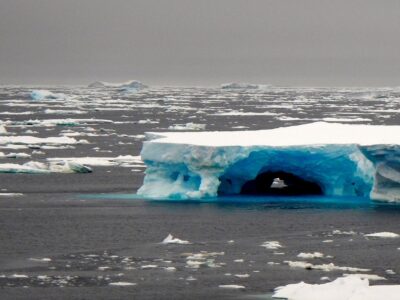A two-year, half-million dollar award from NASA to Columbia Climate School’s CIESIN will kick off a new project that aims to make science more accessible and inclusive.
Named “Science Core Heuristics for Open Science Outcomes in Learning” (SCHOOL), the project will develop a virtual classroom for researchers at varied career levels to learn about how open science can support scientific discoveries.
The project will be led by CIESIN senior systems analyst/GIS developer Kytt MacManus, with co-investigators Sri Vinay, associate director for information technology; Greg Yetman, associate director for geospatial applications; Deborah Balk, director, CUNY Institute for Demographic Research (CIDR); and Tom Parris, president, iSciences.

The SCHOOL lessons will be structured around the data science life cycle using open, interactive, earth science applications use cases that span the disciplinary areas of water resources, agriculture, health and air quality, disasters, climate, wildfires, and environmental justice, with the areas of population and infrastructure integrated into each. Instruction will involve accessing and analyzing NASA data sources, drawing heavily on data and services from the 12 NASA Distributed Active Archive Centers, of which CIESIN’s Socioeconomic Data and Applications Center (SEDAC) is one. The highly interactive modules will utilize core open-source data, analysis, and visualization libraries. Users will be guided through generation, collection, processing, storage, management, analysis, visualization, and interpretation of NASA data.
The project will educate scientists at multiple career levels — from undergraduates to established scientists and professional teams. The approach to developing the learning modules will prioritize diverse contributions and perspectives and will use free and open technologies to establish best practices for content creation management. Teams will include not just subject matter experts and developers but end users from a wide range of ethnic, linguistic, and socioeconomic groups, including historically under-represented groups who will receive support to participate. The principles of inclusive teaching and active learning, which recognize that students arrive with unique sets of needs and abilities, including physical or cognitive variety, and socioeconomic, linguistic, and cultural differences, will guide the content development.
Over the course of the two-year project, modules will be produced and released at regular intervals in hybrid open meetings to engage diverse communities in determining module needs. Content will be suitable for both self-driven or instructor-led learning, and available in both English and Spanish versions.
In earlier work funded by the US Army Corps of Engineers, CIESIN and iSciences developed open science tools for ecosecurity as part of the DANTE project. iSciences will contribute to efforts for the SCHOOL project.
The award forms part of the NASA Transform to Open Science (TOPS) mission, under the NASA’s Open-Source Science Initiative to increase understanding and adoption of open science principles and techniques, which in January 2023 was declared a priority by President Joe Biden.




Great job